Benin
Benin's President Patrice Talon on Wednesday pledged to prosecute and punish those responsible for the pre-election violence that erupted in the country's central region, a day after he was re-elected with more than 86% of the vote.
Benin woke up on Wednesday after a very calm night, without violence, and without celebration. The re-election of Patrice Talon, who faced two candidates unknown to the general public, did not surprise many people in this West African country.
Talon did not give a speech thanking his voters, but he went to hospital on Wednesday morning to visit members of the police force injured during pre-election protests that broke out last week in several communes in the centre of the country, a stronghold of former president Thomas Boni Yayi.
It was a case of "unacceptable proportions" (of violence, editor's note) and we will do everything to ensure that it never happens again," said Mr Talon, who promised to "identify the instigators" of the demonstrations.
Protesters denouncing the lack of a credible opposition to Sunday's vote had set up roadblocks on major roads, cutting off traffic from the south to the north. They were dislodged by the security forces using tear gas and then live ammunition.
"Twenty-one defence and security forces personnel were injured by bullets," Interior Minister Sacca Lafia said, without mentioning any civilian casualties. Two people were shot dead, and five people were injured in Savè, according to an AFP count.
"The worst is behind us," promised Patrice Talon, saying the violence had not claimed any victims "among the assailants".
"We will work together to repair what is wrong, to establish a climate of stability, security and peace so that this kind of thing never happens again," he warned.
- A formality" -
On Tuesday evening, the Electoral Commission announced his victory with more than 86% of the vote, against Corentin Kohoue (2.3%) and Alassane Soumanou (11.29%), two former deputies, accused by the main opposition figures of being "stooges" of President Talon.
The main opponents are either in prison, in exile or have been prevented from taking part in the vote, and several of them had called for a boycott.
The official turnout was 50.17%, but the figure raises questions after international observers said the turnout was "low".
"When you look at the turnout in the polling stations, the information from civil society, and what we observed ourselves, we are a little surprised by the participation rate of 50%," said Expedit Ologou, a Beninese political scientist.
For Mr Talon, this re-election was a "formality", says the expert. "The election was already won (...) but it should make us think about the enthusiasm that citizens lacked to go and vote.
The United States called on Wednesday on Twitter for the government "to hold consultations (...) to ensure that future elections are competitive and inclusive".
In early April, a Beninese judge of the Court of Repression of Economic Offences and Terrorism (Criet), a special court created under Mr Talon, left his post and fled the country, denouncing pressure from the government to imprison the opponent Reckya Madougou.
"For several months, the regime's opponents have been subjected to a witch-hunt punctuated by the exile of several personalities and the imprisonment of those who have decided to brave the situation on the ground," writes Francis Kpatindé, a journalist and lecturer at Sciences Po Paris in a note for the think-tank Iris.
"The opposition is voiceless, ethereal, not to say stunned," he notes.
Nevertheless, the head of state, posing next to his running mate Mariam Talata, seems to be ignoring all warnings and criticism. On Twitter, he thanked his voters, rejoicing in his victory: "DEVELOPMENT IS HERE!
And for good reason, the West African country is recording rather good growth rates in a context of global and regional economic crisis, with a 5% forecast for 2021.




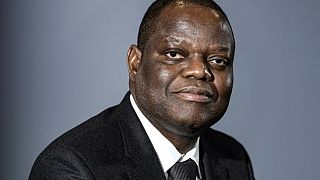
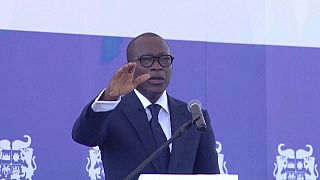
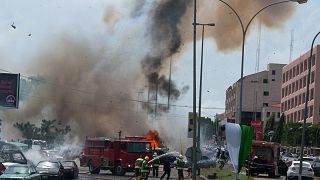

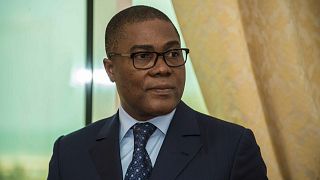
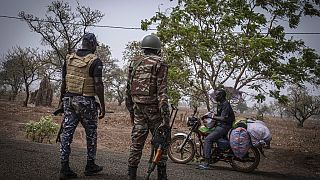

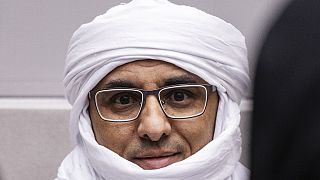
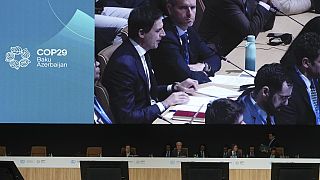
00:58
Somaliland opposition leader wins presidential poll
01:19
Gabonese vote on new Constitution
01:10
Voters head to polls in Somaliland as leaders hope for global recognition
01:11
Chad's electoral body disqualifies senior ruling party official
01:44
Mauritius heads to the polls in wake of wiretapping scandal
Go to video
Why Mozambique's election has sparked weeks of protests and a violent crackdown by police